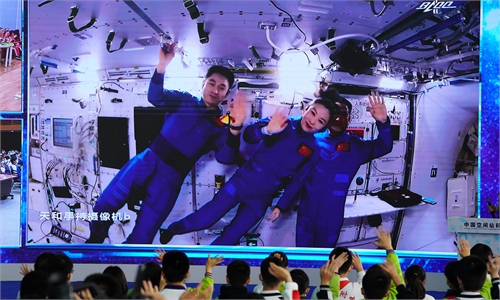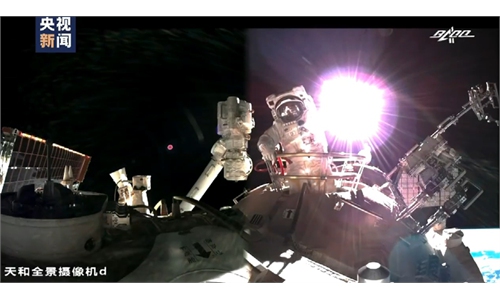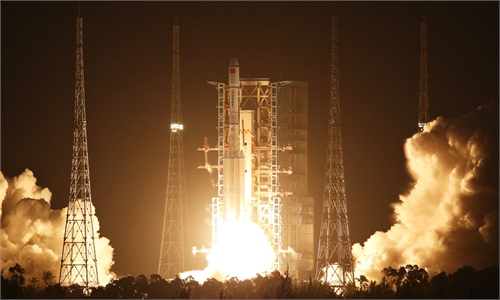China completes 1st in-orbit spacecraft transposition test with space station's robotic arm
China conducted a successful transposition test of its space station's cargo craft Tianzhou-2 using a home-developed robotic arm early Thursday morning.
It was the first time the robotic arm operated a large space vehicle for relocation transfer test, which verified the feasibility and effectiveness of such a maneuver, China Manned Space Agency (CMSA) said on Thursday.
The transposition process took 47 minutes. After grabbing the Tianzhou-2 cargo spaceship that detached from the Tianhe core cabin at 6:12 am, the robotic arm steadily moved the craft in a counterclockwise direction until it eventually docked again with the core module and completed locking.
The Thursday test validated the feasibility and effectiveness of the robotic arm's transposition capability, verified relevant technologies, and laid a solid foundation for the busy schedule of space station construction in the new year.
Wang Ya'nan, chief editor of Beijing-based Aerospace Knowledge magazine, told the Global Times on Thursday that the trial run is of great significance, as it laid the groundwork for future spacecraft or module relocations in the space station.
"While China's spacecraft has the ability to conduct autonomous rendezvous and docking, the assistance of the robotic arm provides a backup plan for such maneuvers, and it is more energy-saving and efficient, taking only less than an hour," Wang noted.
The robotic arm system was developed by the China Academy of Space Technology (CAST), the main contractor of the space station program.
It is the most complex and largest mechanical systems in space, with the highest control accuracy, the Global Times learned from CAST. The arm is 10.2 meters long, and its maximum loading capacity is 25 tons, capable of moving the space lab modules of the station in the future.
China eyes 40-plus launches in 2022, which will include six major space station-bound flights - two cargo ships, two manned ships and two experimental modules -- the state-owned space giant China Aerospace Science and Technology Corporation (CASC) said on Tuesday.
They will conduct in-orbit rendezvous and docking operations, space walks, and spacecraft returning missions this year, wrapping up the construction work of China's Tiangong space station.
China completed 55 orbital launches in 2021, the most in the world.
Of the 55, 48 were from the CASC and all of them were successful, sending more than 100 spacecraft into space, and bringing a complete victory to the most ambitious aerospace year of China.
The world saw a total of 145 space launches in 2021, of which 55 were from China, 51 from the US, and 25 from Russia.



